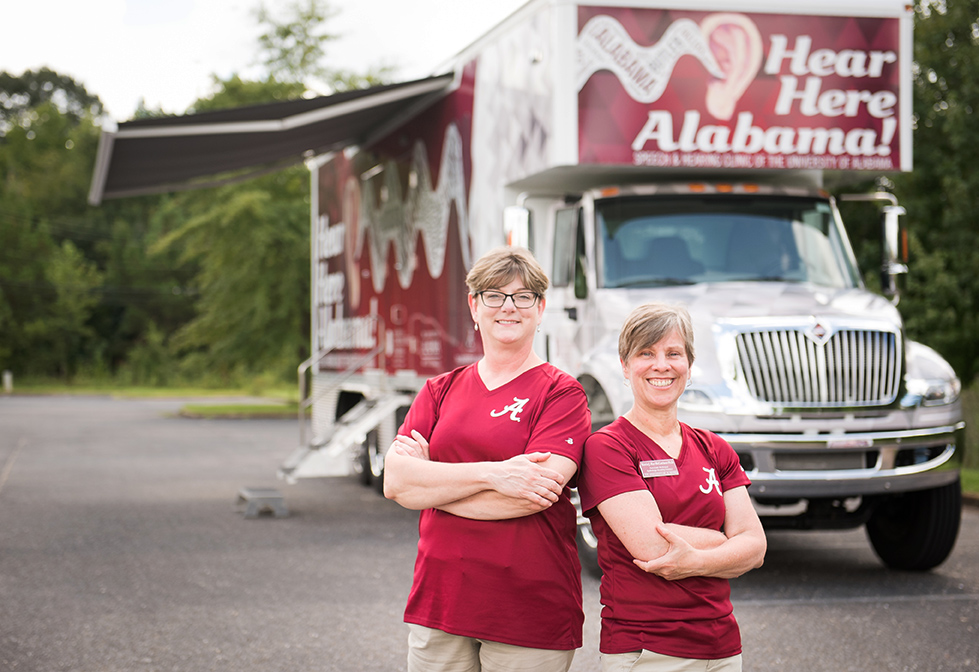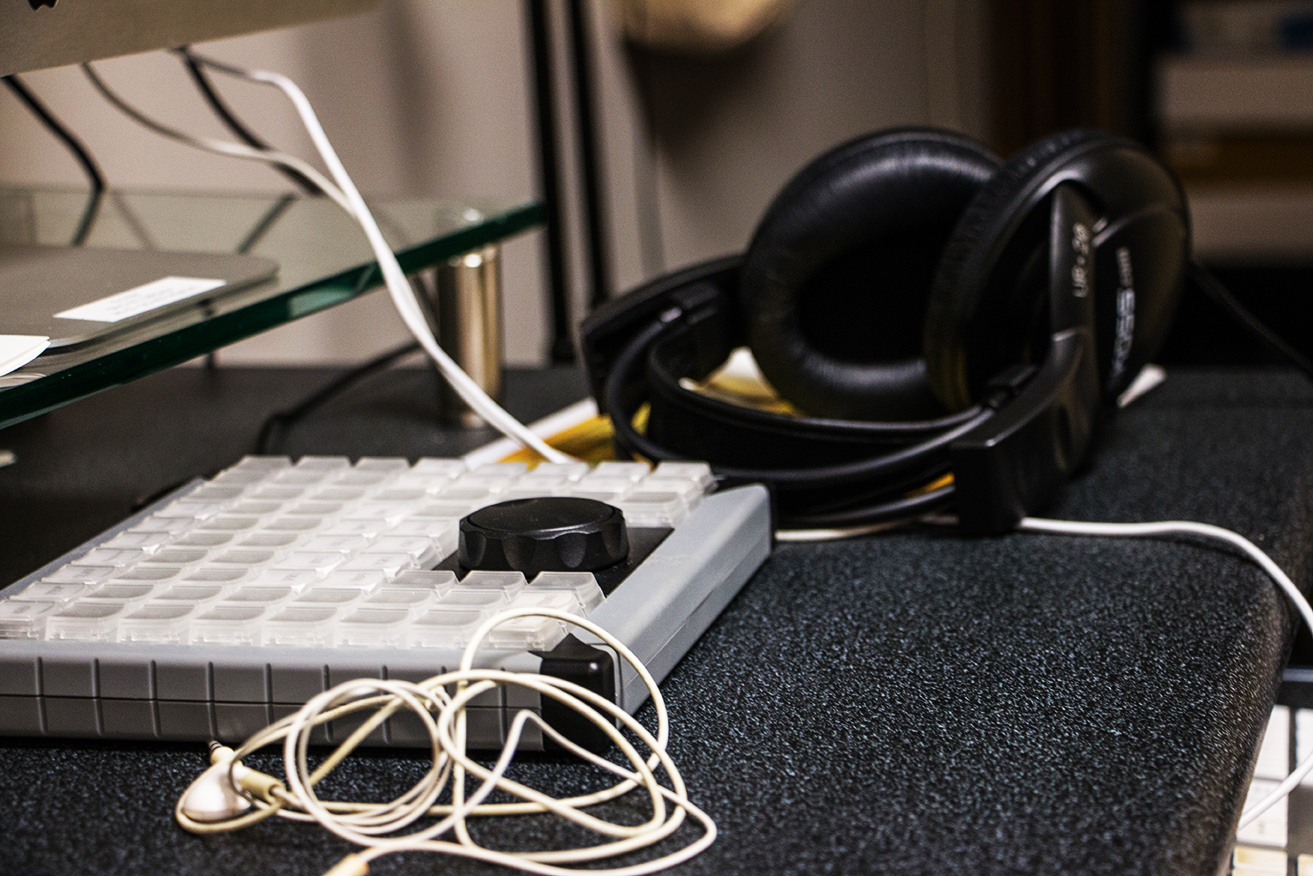Within the Department of Communicative Disorders, faculty and students conduct research in many areas within the field. The following areas are particular foci of the faculty’s published work in recent years.
Current and prospective students are encouraged to inquire about research experience in these areas (or others) or learn more about recent student research on our Research Opportunities page.
Audiology
 Rural Hearing Health
Rural Hearing Health
Dr. Marcia Hay-McCutcheon and her colleagues have used the mobile audiology clinic (the Hear Here Alabama truck) to discover that both physical health and emotional well-being are affected in those with hearing loss. In addition, they have found that adults with hearing loss with limited access to hearing health care, have poorer social support networks and fewer positive social interactions compared to adults with hearing loss who have greater access to hearing health care. These two findings are important because overwhelming evidence suggests that poor social support and limited positive social interactions can have devastating effects on overall general health. Her most recent work has suggested that overall quality of life can be affected for those without access to hearing health care.
Her current work focuses on two areas, including, 1) conducting studies to help understand the social consequences of hearing loss for those without access to hearing health care; and 2) identifying the importance of providing specific rehabilitation services, including amplification, for adults who cannot afford hearing health care or who have no hearing health care resources in their communities.
Dysphagia and Voice
Early Childhood Development
Dr. Hyunjoo Yoo’s research interests include investigating infant vocal development, mother-infant interaction, and early affect communication, which are foundations for speech and language development. She has been pursuing two lines of research in the hope of finding how infants develop infrastructure of vocal interaction and how caregivers play a role in infant language development: one line seeks mechanisms of caregiver-infant interaction (e.g., turn-taking) and the other line pursues acoustic correlates that account for the link between perception and production of infant and caregiver speech in vocal interaction. This understanding will not only provide deeper insight on speech and language development and early intervention but also assist in prediction of disorders such as autism.
Pediatric Feeding and Swallowing Disorders
Recently, Dr. Memorie Gosa has been the principal investigator on projects involving the prevalence of feeding difficulties in children with autism; achievement of oral feeding skills in infants born prematurely; benefits of sidelying during bottle feeding for infants in NICUs; evidence-based systematic review of feeding therapy interventions for improving oral intake; and clinical application of systematic desensitization for improving variety of oral intake.
Neurology
Aphasia
Dr. Spyridoula Cheimariou’s research interests involve the neural basis of language processing, with an emphasis in hierarchical prediction frameworks, by looking into aging and neurogenic language disorders, such as aphasia, and by using an array of techniques including EEG and eye-tracking.
 Computational Neuroscience of Communication
Computational Neuroscience of Communication
Dr. Evie Malaia studies dynamic brain network organization in both neurotypical and special populations (such as children on the autism spectrum, deaf users of sign languages, etc.) using neurophysiology, neuroimaging, computational modeling, and behavioral methods. The goal of her research is to understand what neurocomputational algorithms underlie the use of external signal (visual and auditory language) for communication and cognition, and variability of these algorithms across clinical populations.
Speech and Language
Language and Cognition
Dr. Luca Campanelli’s research seeks to understand how the cognitive architecture constrains speech and language processing and its implications for education, training, and intervention. Understanding the nature and the source of processing difficulty and breakdown in language comprehension has been a central goal in psychology and linguistics for its theoretical and practical implications. What makes difficult-to-process sentences difficult? What are the cognitive mechanisms behind language variations and individual differences in typical and atypical comprehenders? How can we apply findings from experimental psycholinguistics research to enhance education and intervention strategies?
Social and Regional Dialectal Variation
Dr. Paul E. Reed’s primary research interests involve social variation in the spoken language of the American South and Appalachia. The goal of his research is to document and explore what features vary across the region, and what social factors (age, gender, region, etc.) influence variation. In particular, Dr. Reed focuses on how place-based attachment, what he calls rootedness, interacts and intersects with other social factors. This research helps future clinicians to understand the full breadth of dialectal variation and linguistic differences across the region. Further, this data can help create adjustments to commonly used assessments that incorporate dialectal difference into the scoring mechanism.
